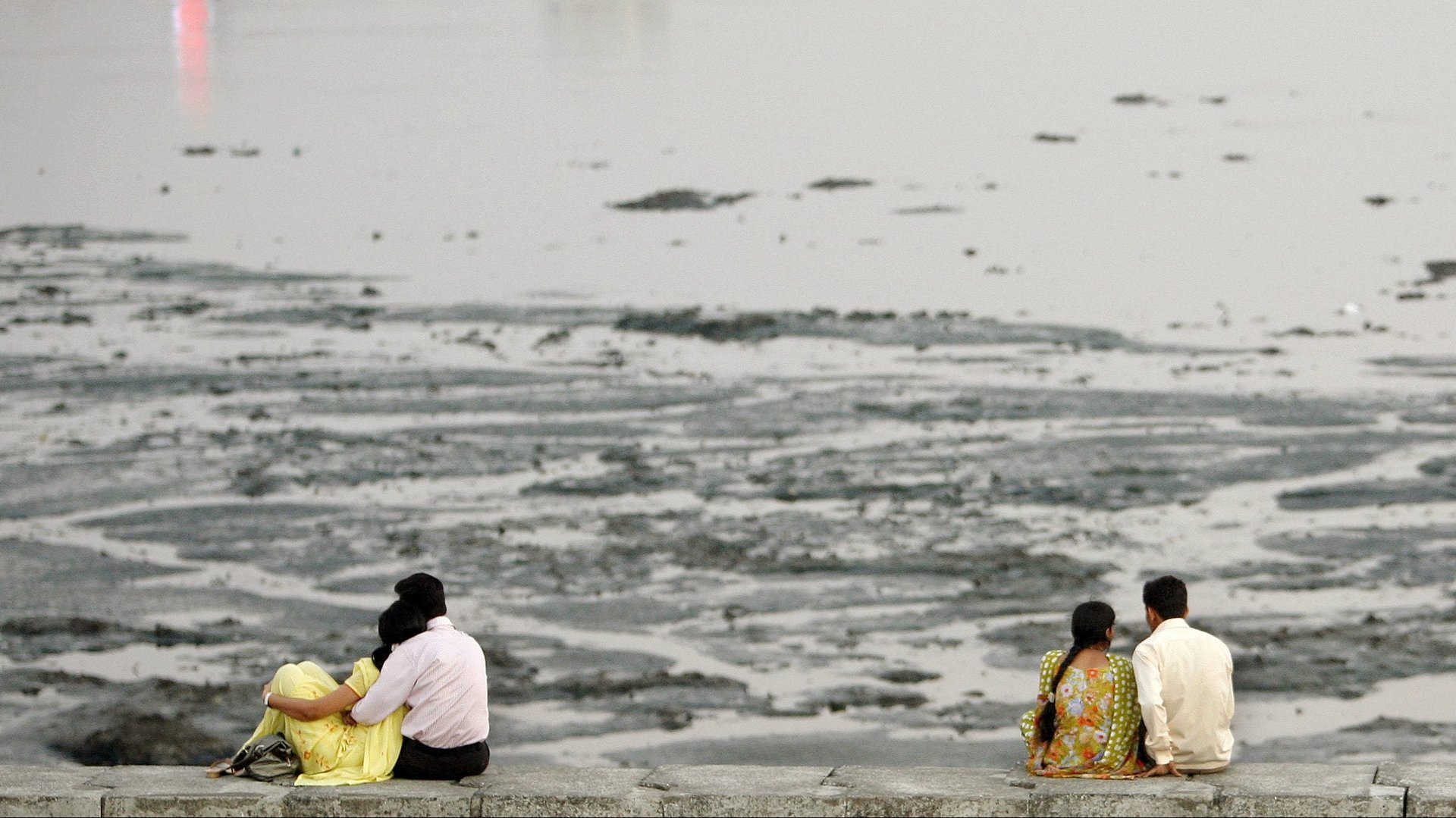Married couples only: Conservative India’s moral policing extends to Airbnb
A number of Airbnb listings in India use a version of this caveat: married couples only.


A number of Airbnb listings in India use a version of this caveat: married couples only.
In essence, the hosts do not accommodate couples of the opposite sex unless they are married or are siblings or close relatives (often requiring documentary evidence). The refusal is usually based on cultural sensitivities or stems from the fear of harassment by the cops or the moral police, a peculiar south Asian vigilantism against anything deemed immoral.
For instance, businessman S Nisar, who rents out a property in Chennai, fears getting unwittingly involved in illicit activities. “Actually, if we allow unmarried couples, there is a risk that we, at our place, are allowing prostitution,” Nisar told Quartz over Airbnb’s messaging portal. A manager at Mumbai’s Hotel Flora Fountain cited “harassment by local authorities and police” as the reason for not taking bookings from unmarried couples on Airbnb. Earlier this month, Buzzfeed found a “married only” policy on dozens of listings.
The Hotel Association of India (HAI), an umbrella organisation overseeing nearly 300 hotels across the country, says that no law bars unmarried couples from sharing a room. In fact, the supreme court of India made it explicit that heterosexual relations among consenting adults was not an offence if it was not adulterous. But there’s no stopping the cops who regularly raid hotels, bars, and nightclubs—often based on mere rumours and baseless complaints—to harass unmarried couples.
A Quora user from Hyderabad wrote that she and her boyfriend were dragged out of their hotel room and tormented by the police; they ended up paying a Rs5,000 ($78) bribe to be let off the hook. Two years ago, the Mumbai police raided a series of suburban hotels and accused over 40 couples of “public indecency” and subjected them to a fine of Rs1,200 (about $19) each.
So, hotels and hosts remain cautious. Even online aggregators like Cleartrip and MakeMyTrip specify that hotels reserve the right to deny entry to unmarried couples.
Airbnb has a non-discrimination policy as per which hosts can’t refuse guests based on their race, religion, national origin, sexual orientation, or other reasons. However, these guidelines are strictly followed only in the US and the European Union, Airbnb notes. The San Francisco-based room-booking portal recognises that “some countries or communities may allow or even require people to make accommodation distinctions based on, for example, marital status, national origin, gender or sexual orientation.”
While the portal accommodates the hosts’ concerns, it makes sure they are reasonable. ”In some very rare cases, hosts may have reasonable concerns, but in the overwhelming majority of cases, the host removes this restriction or we remove the host from our community,” an Airbnb spokesperson told Quartz. If hosting an unmarried couple could subject the host or guest to the risk of arrest or physical harm, they may not be allowed, the San Francisco-based firm says.
To play safe, some hosts seek government-issued IDs from guests. But not everyone wants to work his or her way around. Blame cultural conservatism for that.
Closed minds
At Thelma Kariappa’s estate in Kodagu in southern India’s Karnataka, house rules regarding unmarried couples are not up for debate. They help “avoid local ‘unmarried’ couples misusing our accommodation or mistaking it for ‘love hotels’ that can be found in some parts of the world,” Kariappa said. “This is a small town of India,” she told Quartz, referring to Kodagu’s Madikeri hill station where her estate is located.
Badrinath S, another Puducherry host listed on Airbnb, said, “Our traditions do not encourage unmarried couples.” He even asked if it was “ethical” to do so.
Vigilantes often roam the streets of Indian cities and towns, targeting even young boys and girls found together in public places. For instance, Valentine’s Day is a guaranteed red rag for such thuggery—actions range from stern warnings to spot weddings to ruthless thrashings.
Given such circumstances, finding rooms is a far cry. Yet, some doors have been opening in recent times.
A few startups have begun offering guaranteed privacy and safety for the unmarried.
New Delhi-based StayUncle, for instance, helps such couples rent hotel rooms for between eight and 10 hours. (The company’s first angel investment of a “couple of lakhs” came from Ajay Naqvi, AirBnB’s country marketing manager till August 2016.) Gurgaon-based hotel aggregator OYO Rooms has also launched a “relationship mode” that only lists hotels that welcome unmarried couples.